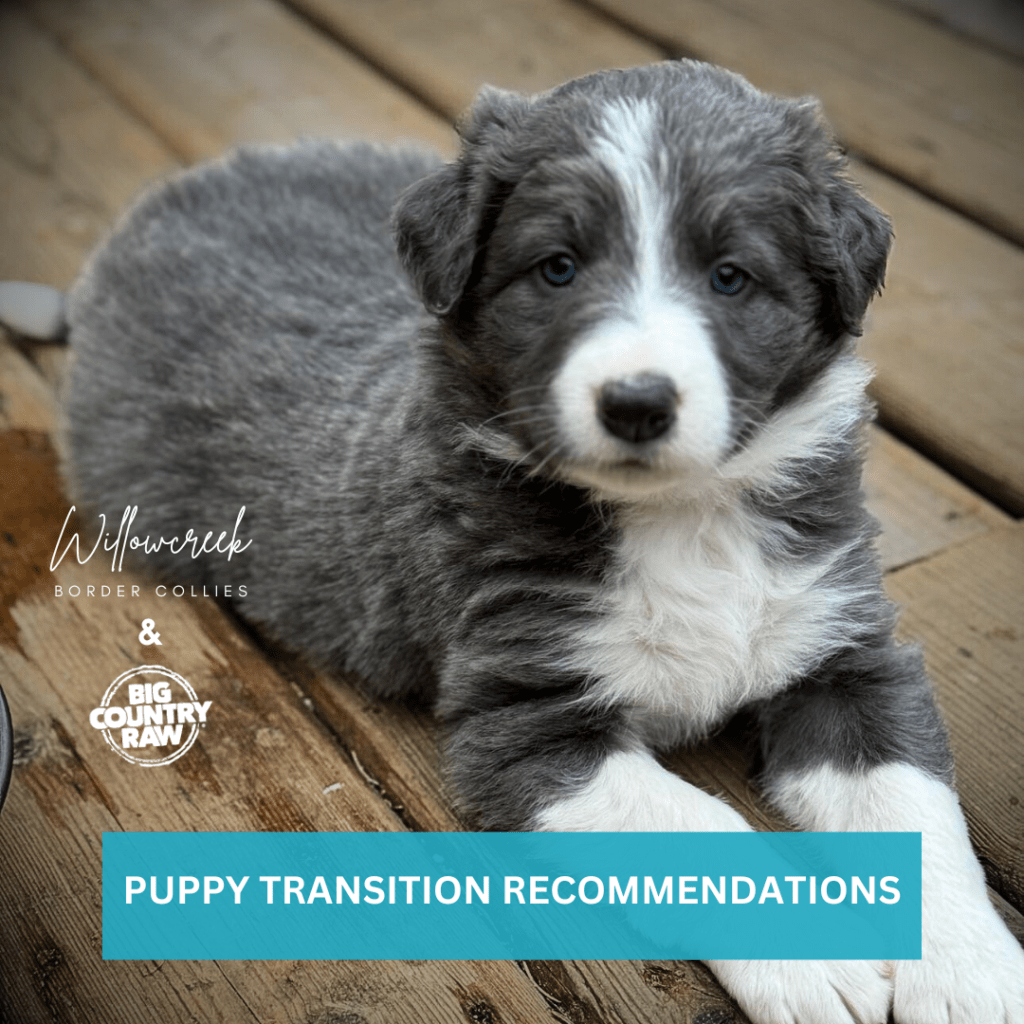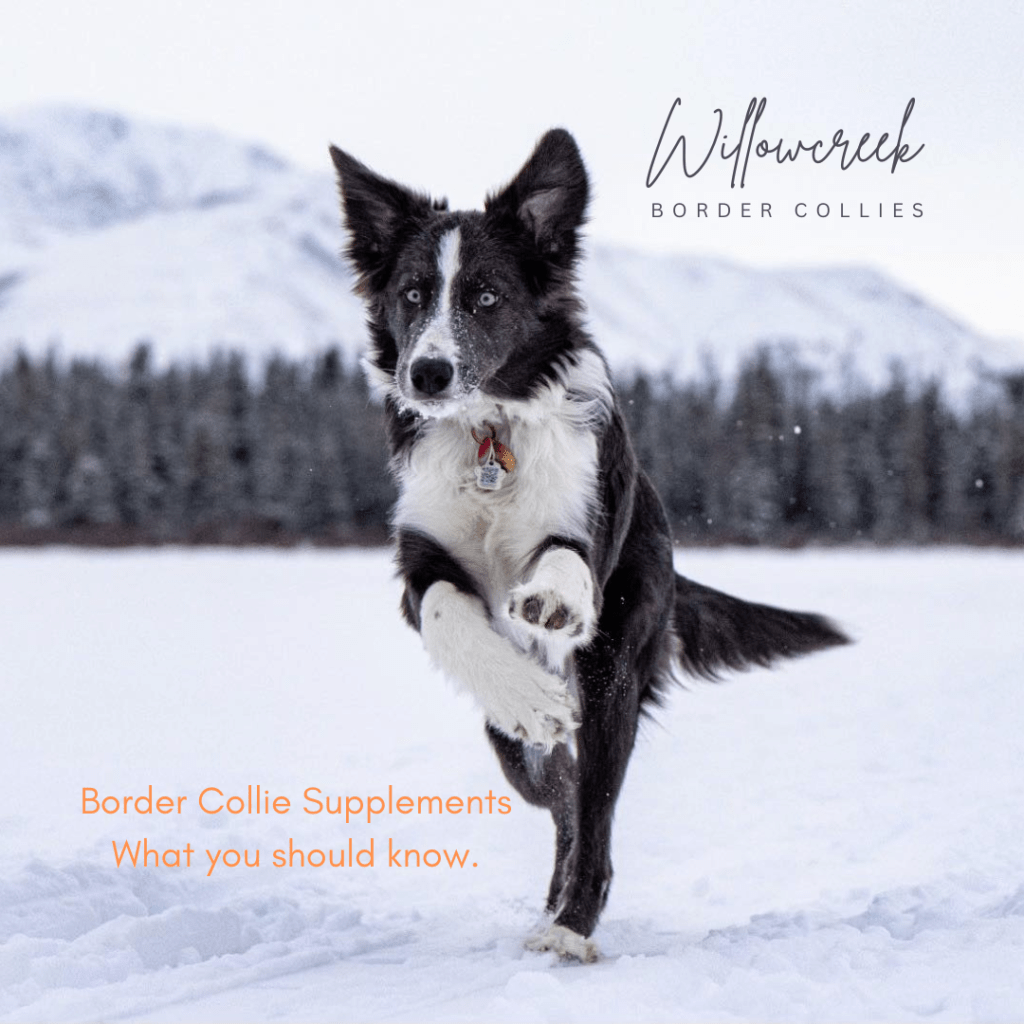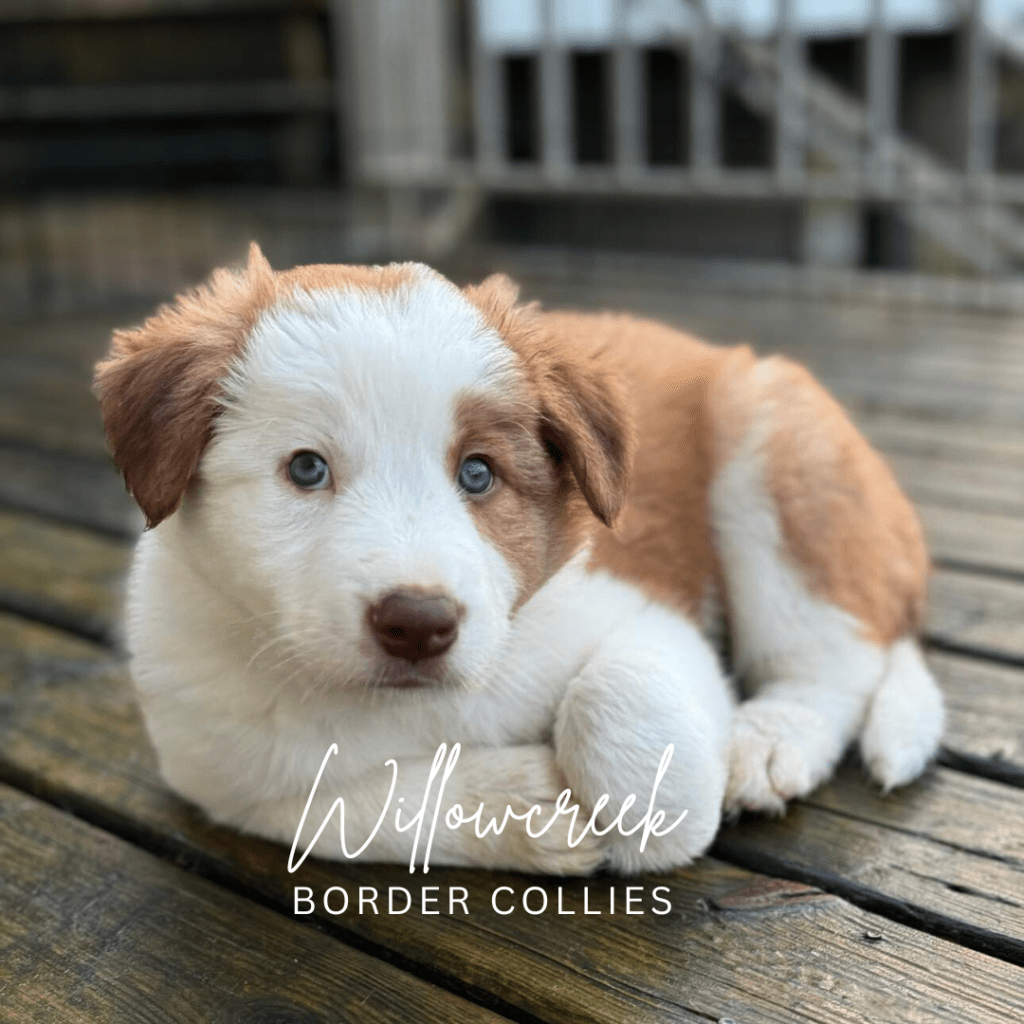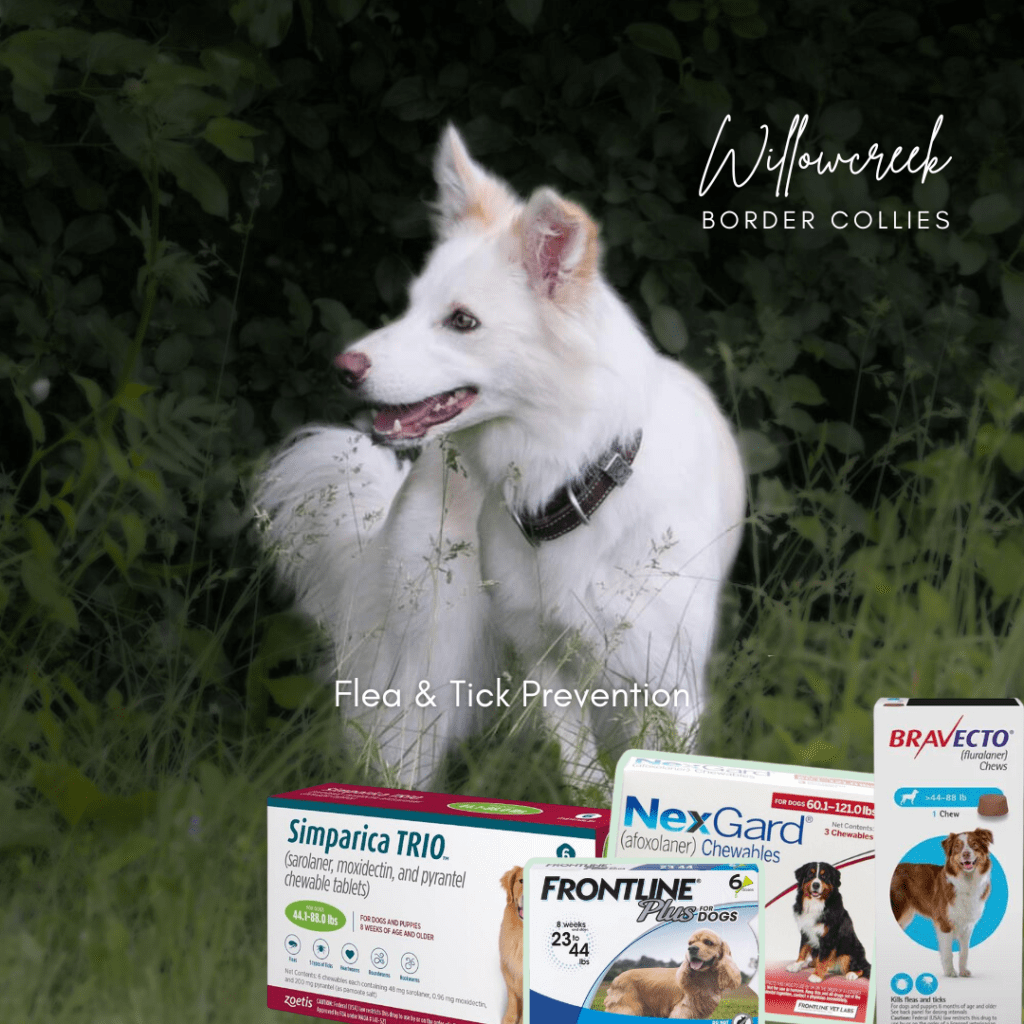OMEGA-3 & DHA, is it good for dogs?
We believe that a well-balanced and nutritious diet is crucial for the overall health and well-being of our our Border Collies. Understanding the significance of fats, specifically omega-3 fatty acids, in their diet is essential for providing optimal care. In this article, we’ll delve into the importance of omega-3, its benefits, cautions, and the recommended dosage to ensure the healthiest start for your canine companions.
The Role of Fats in a Dog’s Diet:
Fats play a vital role in maintaining the health of dogs, providing energy, supporting the development of cells, nerves, muscles, and body tissues. Additionally, fats are integral in the production of hormone-like substances called prostaglandins, which help reduce inflammation and perform various essential functions in the body. While a balanced fat intake is essential, excessive consumption, often from treats and table scraps, can lead to health issues.
Understanding Fatty Acids and Omega-3:
Fatty acids are the building blocks of fats, and among them, essential fatty acids are crucial for dogs as their bodies cannot produce them. These essential fatty acids fall into two groups: omega-3 and omega-6. This article focuses on the importance of omega-3, particularly sourced from fish oil.
Benefits of Omega-3 Fatty Acids:
- Improving Coat and Skin Health: Omega-3 contributes to a shiny and healthy coat, preventing dry, itchy skin.
- Reducing Inflammation: Effective in managing conditions such as arthritis, allergies, and inflammatory bowel disease.
- Regulating the Immune System: Balancing immune responses, beneficial for dogs with allergies or autoimmune diseas
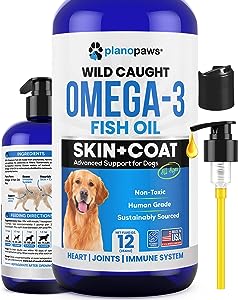 es.
es. - Mental Development: Aiding in the mental development of fetuses and puppies, and enhancing cognitive function in older dogs.
- Support for Various Health Conditions: Providing assistance in managing kidney disease, heart disease, cancer, and aiding in weight loss for overweight dogs.
fatty acids EPA and DHA, is a valuable supplement for canine diets. However, the fragility of these fatty acids makes proper storage crucial. At Willowcreek Border Collies, we recommend high-quality omega-3 supplements, such as krill oil and whole fish, to ensure the best absorption of these essential nutrients.
Choosing Quality Omega-3 Supplements:
Not all fats and oils are suitable for pets.
Cautions and Dosage:
While omega-3 supplements offer numerous benefits, caution should be exercised in their storage and dosage. Protect fish oil from light, heat, and air, and discard if an off odor is detected. It’s advisable to seek out high-quality, molecularly distilled products to minimize contaminants.
When determining dosage, consider your dog’s weight and health status. For healthy dogs, 100 to 150 mg of EPA and DHA per 10 pounds of body weight daily is recommended, while those with health issues may benefit from up to 300 mg per 10 pounds of body weight. Always use products made for either humans or dogs, and be cautious of added flavors in human-grade products that may not be appealing to dogs.
(you’re welcome to research this, this recommendation is based on one of my favorite go to sites, https://rehabvet.com/
Willowcreek Border Collies, we prioritize the nutritional needs of our dogs, emphasizing the importance of omega-3 in their diet. We encourage responsible pet ownership, reminding our community that seeking professional advice, especially from a nutrition specialist, is crucial for tailoring the best nutritional plan for your canine companions. Providing a balanced and omega-3-rich diet is a step towards ensuring a lifetime of health and happiness for your Border Collie.







